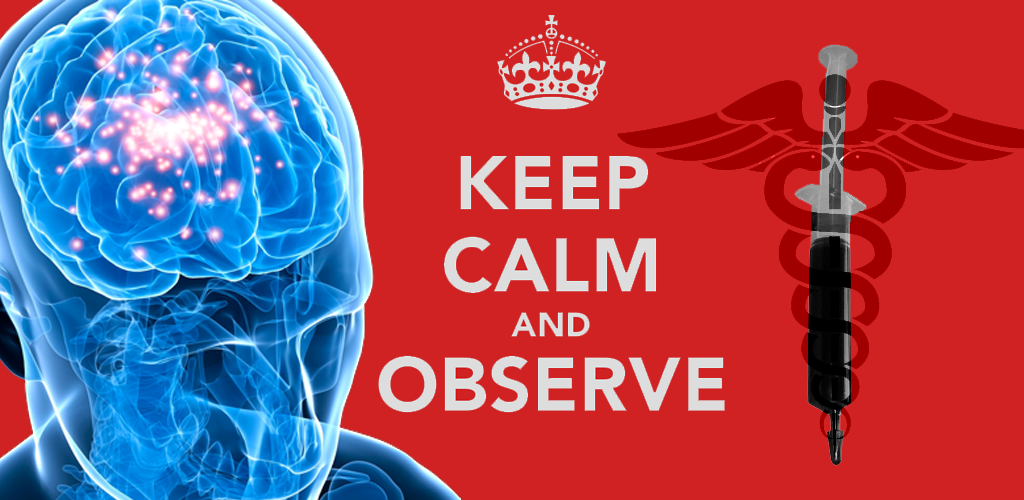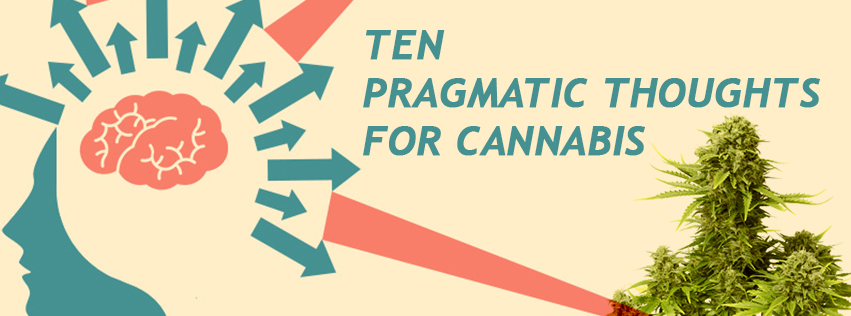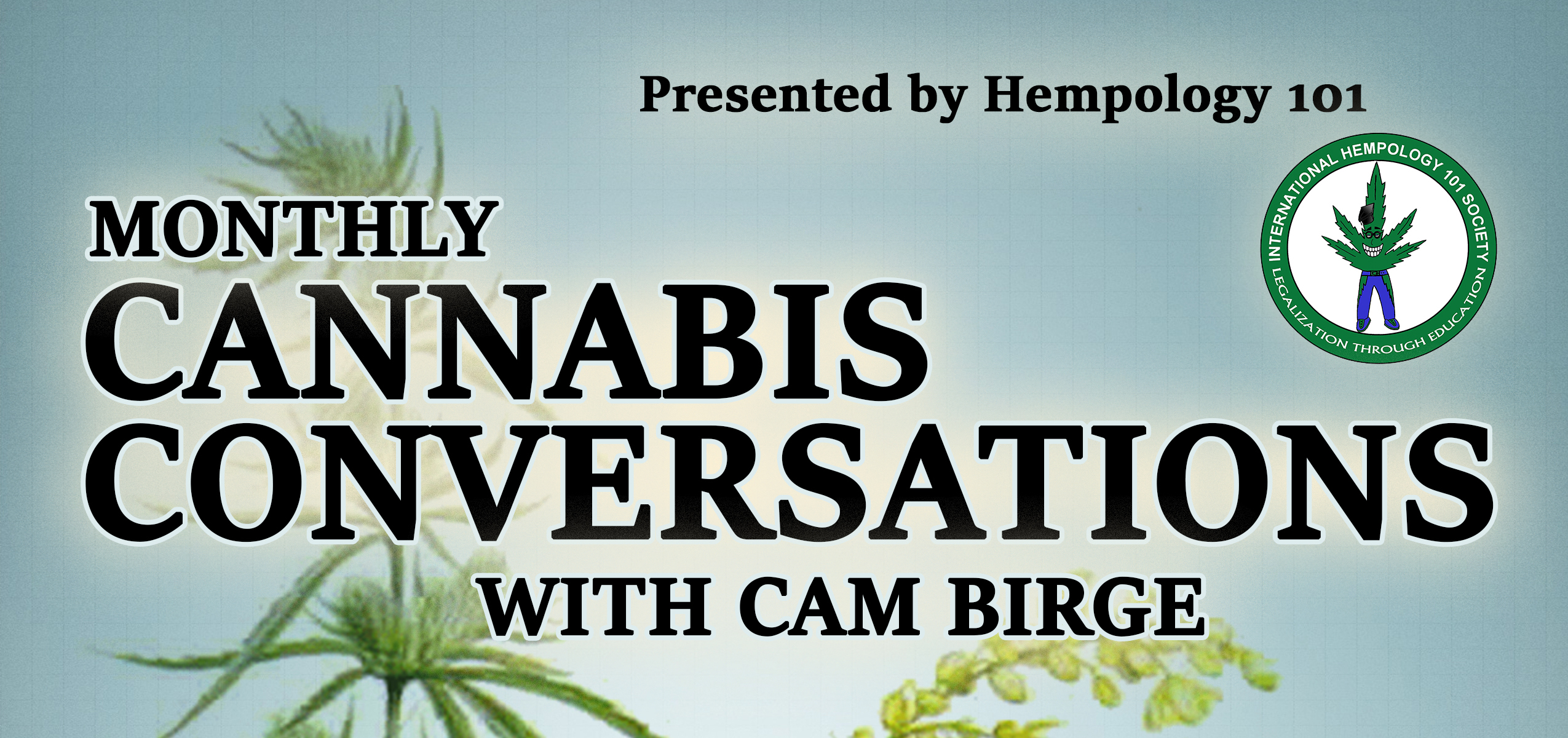Some Thoughts on Recent Events
Nothing has captured the public imagination and influenced lawmakers more powerfully in recent months than the news on CBD-rich cannabis oil and its remarkable ability to quell seizures in children with epilepsy. Since the 2013 airing of CNN’s documentary, “Weeds I,” which brought us the story of young Charlotte Figi and her successful battle with Dravet’s Syndrome, scores of families have relocated to liberally minded Colorado to obtain this oil, as it is illegal in their home states. Meanwhile, 14 other states have legalized it. Canadian children have experienced similar relief from cannabis oil acquired locally with the tacit approval of law enforcement. It remains illegal at the federal level.
For students of cannabis history these events are surprising only in their timing and swiftness. Cannabis oil is mentioned as a remedy for “seizures of childhood” in the Indian Hemp Drugs Commission Report of 1894; in the earlier 19th century accounts of William O’Shaughnessy; in early 20th century American formularies; in post World War II classified CIA and military cannabis experiments; in a 1949 study by Davis and Ramsey, which tested cannabis oil on 5 institutionalized children with good to neutral results; and in a 1980 study by Cunha et al. on 19 young patients with good results. There have to be scores of others buried in archives and lists of abstracts.
Despite these facts, federal authorities on ‘drugs’ in both countries have been sharply critical. Doctors, scientists and on-lookers continue to raise objections, to whit: cannabis oil hasn’t been tested for safety or efficacy; there is no evidence that it really works; the parents in question are using their children as guinea pigs; and we don’t know the long-term effects. Today’s blog explores these objections.
IT HASN’T BEEN TESTED FOR SAFETY AND EFFICACY
- This is a favourite slogan of government ministries and medical authorities, and precisely the phrase used by Canadian Health Minister Rona Ambrose when she visited the West Coast this spring. The phrase is meant to sound impartial. But in relation to cannabis oil, it’s become be a powerful invitation to see oneself as a juvenile in relation to a nanny state. As such it chafes against natural parenting impulses. Parents have a visceral need to keep their family safe, and that includes providing family members with medicines that work. For many young epileptics the current medicines don’t work, and have life-threatening side effects. Calls for safety and efficacy these days are politically loaded.
- True conservatives and other thoughtful persons place value on historically based knowledge. Lester Grinspoon said it in the 70s, and countless others have said it since: safety is not an issue for cannabis, as in thousands of years of use there have been no deaths attributable to it. Moreover, cannabis fans and their children are about as normal as any other people.
- You can measure prohibitionist bias by whether or not a speaker or writer is waving the big safety flag. By that standard, the CNN’s “Weeds” documentary is reasonably unbiased, and the entries on Cannabis and on CBD in Wikipedia are not. The Canadian 2002 Senate Committee Report on Cannabis is unbiased, and the educational materials produced by the current Ministry of Health are not. The June 2015 Weed article in National Geographic is reasonably balanced; the concurrent Weed article in Time is not.
- In the matter of efficacy it cannot be said often enough that governments, doctors, medical schools, and the scientific community have had plenty of opportunity in the last 75 years to study the benefits of cannabis. Instead they lied to the public and erected roadblocks. For over 20 years now patients have been taking the lead.
THERE IS NO PROOF
- Parents of young patients are the new participants in this movement. Predictably they’re finding themselves juxtaposed to medical authorities stating: there is no proof. Meanwhile they give their kids cannabis oil, and watch the seizures abate.
- Science is based on observation. Every parent, and especially grandparent, has over the years observed enough to become something of a scientist on the subject of child health and development. If the evidence provided by their senses does not qualify as proof, then let’s set aside that concept for now and replace it with something more useful. I recommend the alternative: Reasonably Justified Belief. Are these parents reasonably justified in believing that cannabis oil stops seizures? Absolutely.
- Is that akin to proof? No. For all we know cannabis oil could be having a gravitational effect on the parents of epileptics, who then transmit calming vibes to their child’s brain.
- To date there seems to be no description of how cannabis stops seizures. One hears similar things said about aspirin and headaches. But no one goes around saying that there is no proof that aspirin can stop a headache.
- There is a longstanding North American tradition of ingenuity and self-help that is suspicious of authority. It is the bearers of this tradition that broke through ‘medical’ barriers in the 1970s to win the fight for natural childbirth. Self-helpers have an everyperson’s idea of who can and cannot make claims on science’s behalf, especially when it comes to their health and that of their children.
- We don’t know yet what percentage or types of seizures cannabis can stop, but the self-helpers already know that it doesn’t stop them all. That counts as scientific knowledge.
- Critics have suggested that we cannot as yet distinguish cannabis effects from placebo effects. Infants can’t have placebo effects.
- There is a quality of dignity that comes from relying on one’s own resources and judgment that no medicine and no medical system can replace
THE PARENTS ARE USING THEIR KIDS AS GUINEA PIGS
- This statement is documented in the recent National Geographic article on cannabis, and can be heard in news reports on You Tube.
- Metaphors are powerful. This one says: giving your kids cannabis oil means that you’ve downgraded them from human to experimental animal status. That’s flat out wrong.
- Parents faced with the prospect of a child’s demise, with no other remedy in sight, are more like those men and women who pioneered new surgical techniques in wartime field hospitals, doing what had to be done. Or they are like people caught in a flood, and who have jumped into a lifeboat.
- The guinea pig metaphor also says: these parents are using their children. This image does not begin to do justice to the meaning of family. Mother, father, and child are not radically separate beings. They’re an organic unit: children’s seizures hurt every family member, and their cessation makes everyone joyful. No one in this process is being used.
- People whom legal medicines have failed and whose children are in peril have no leisure for experimentation. Outside observers might see giving cannabis oil to children as an experiment. But they are not in pain, and pain changes everything.
WE DON’T YET KNOW THE LONG TERM EFFECTS
- True, we don’t. But children with seizure syndromes do not have a long term. Mortality rate for these illnesses is 15-20% by age 20. For intractable cases it’s much worse. Many parents say that their children have already come close to death, sometimes as a consequence of prescribed medicines.
- For the seizing child and his or her parents time stands still or moves at an agonizingly slow pace. In that state ‘long term’ alters its meaning.
- It is reasonable to believe that if cannabis produced disastrous long-term effects the historical records would have mentioned it. Cannabis oil is a very old medicine.
- CONCLUSION. Nearly half the North American population has tried some form of cannabis. They’re fine. We should be more worried about the long-term effects of science and media hype. Look what they’ve done with food. Eat fat. No, don’t. Eat carbs. Nope, wrong again. Dine on oat bran. It cures everything. Actually, it’s blueberries and kale that do that. Breaking news! It’s all about fermented stuff. Here’s a food pyramid. It contradicts the last one. Who are these people? Do we want them teaching us about cannabis?
- Small communities who share their observations serve us best. Our clearest path to progress, and our surest defense against bullshit is to stay in touch with them. State and local governments can be pretty good too.
- New motto: Keep Cool and Observe.





